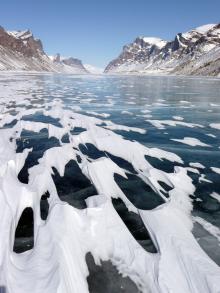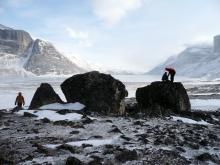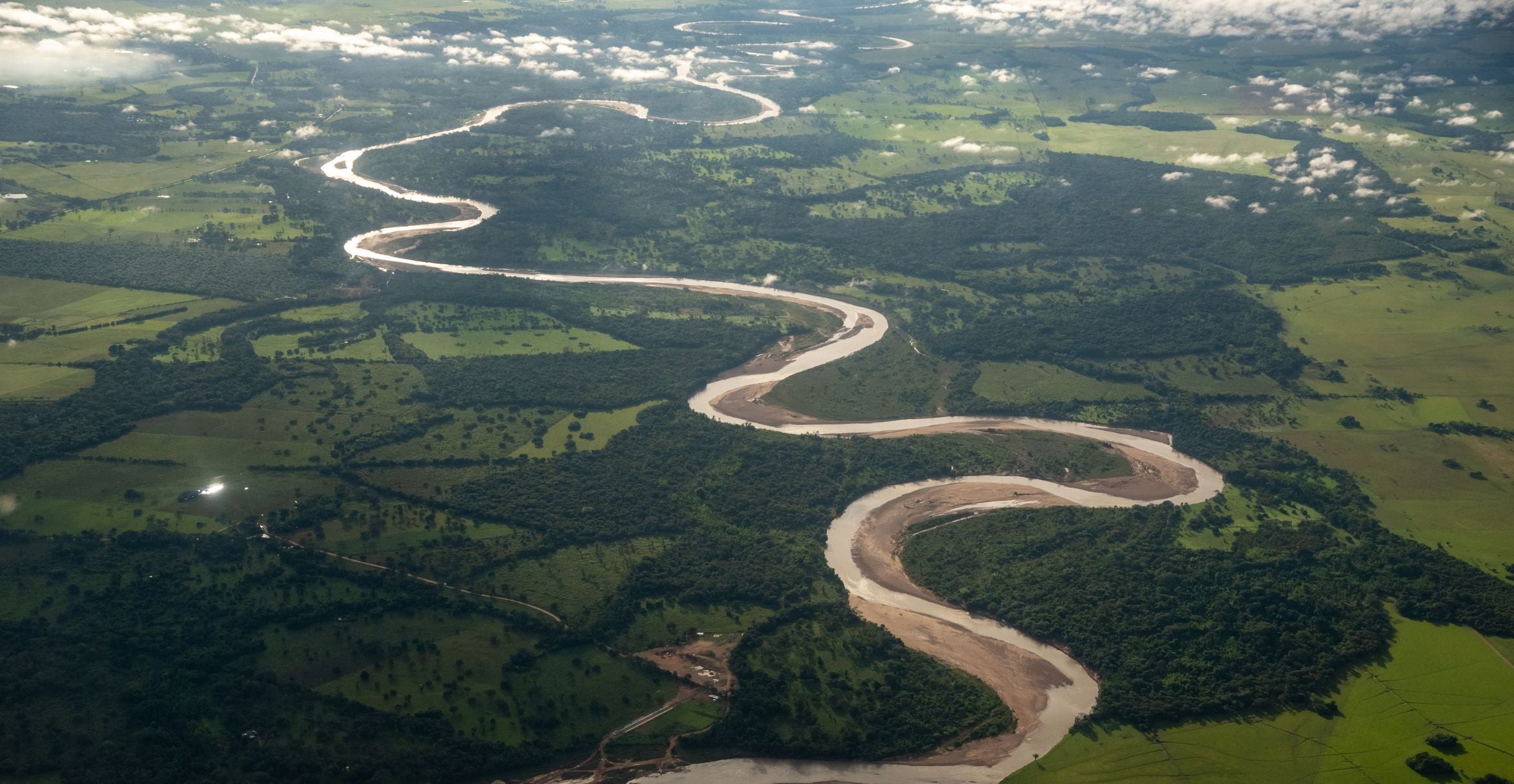
How Fast Can Glaciers Respond to Climate Change?


A new Arctic study in the journal Science is helping to unravel an important mystery surrounding climate change: how quickly glaciers can melt and grow in response to shifts in temperature. A researcher with UC Santa Barbara was part of the team that made the discovery.
According to the new research, glaciers on Canada's Baffin Island expanded rapidly during a brief cold snap about 8,200 years ago. The discovery adds to a growing body of evidence showing that ice sheets reacted rapidly in the past to cooling or warming, raising concerns that they could do so again as the Earth heats up.
Dylan H. Rood, an assistant researcher at UCSB's Earth Research Institute, used an accelerator mass spectrometer at the Scottish Universities Environmental Research Centre, where he is a research fellow, to assist in the research. The equipment is large enough to fill an airplane hangar and uses 7.5 million volts of electricity to accelerate and sort atoms.
"In the past five years or so, important advances in the ultra-sensitive and high precision measurement of cosmogenic isotopes have revolutionized Earth scientists' ability to image how ice sheets and glaciers have responded to past climate change," said Rood. Cosmogenic isotopes are rare atoms produced in rocks at the surface of the Earth that are derived from cosmic rays.
He explained that the longer the rocks are exposed at the surface of the Earth, the more radiation they receive, and the more rare beryllium-10 atoms are produced and trapped in the rocks.
"The accelerator mass spectrometer allows us to measure these very rare beryllium-10 atoms," said Rood. "This is analogous to finding the one grain of sand that is different from the rest on a beach." Such cosmogenic isotopes are an important dating tool in the Earth sciences because they allow scientists to reconstruct ancient events, changes, and processes on the Earth's surface.
"One of the questions scientists have been asking is how long it takes for these huge chunks of ice to respond to a global climate phenomenon," said study co-author Jason Briner, a University at Buffalo associate professor of geology. "People don't know whether glaciers can respond quickly enough to matter to our grandchildren, and we're trying to answer this from a geological perspective, by looking at Earth's history.
"What we're seeing," he added, "is that these ice sheets are surprisingly sensitive to even short periods of temperature change."
Briner's colleagues on the study included lead author Nicolás Young, a postdoctoral researcher at Columbia University's Lamont-Doherty Earth Observatory, and Robert C. Finkel of UC Berkeley.
The research team found that mountain glaciers on Baffin Island, along with a massive North American ice sheet, expanded quickly when the Earth cooled about 8,200 years ago. The finding was surprising because the cold snap was extremely short-lived: The temperature fell for only a few decades, and then returned to previous levels within about 150 years.
"It's not at all amazing that a small local glacier would grow in response to an event like this, but it is incredible that a large ice sheet would do the same," Young said.
To conduct the research, Briner led a team to Baffin Island to read the landscape for clues about the prehistorical size and activity of glaciers that covered the island.
Moraines –– piles of rocks and debris that glaciers deposit while expanding –– provided valuable information. By dating these and other geological features, the scientists were able to deduce that glaciers expanded rapidly on Baffin Island about 8,200 years ago, a period coinciding with a short-lived cold snap.
The researchers also found that Baffin Island's glaciers appeared to have been larger during this brief period of cooling than during the Younger Dryas period, a much more severe episode of cooling that began about 13,000 years ago and lasted more than a millennium.
This counterintuitive finding suggests that unexpected factors may govern a glacier's response to climate change.
Detailed analyses of this kind will be critical to developing accurate models for predicting how future climate change will affect glaciers around the world, Briner said. The study was funded by the National Science Foundation.
† Middle image: Ayr Lake, Baffin Island, Canada. Scientists studying this remote region found that the island's glaciers reacted rapidly to past climate change, providing a rare glimpse into glacier sensitivity to climate events.
Credit: Jason Briner
Related Links



